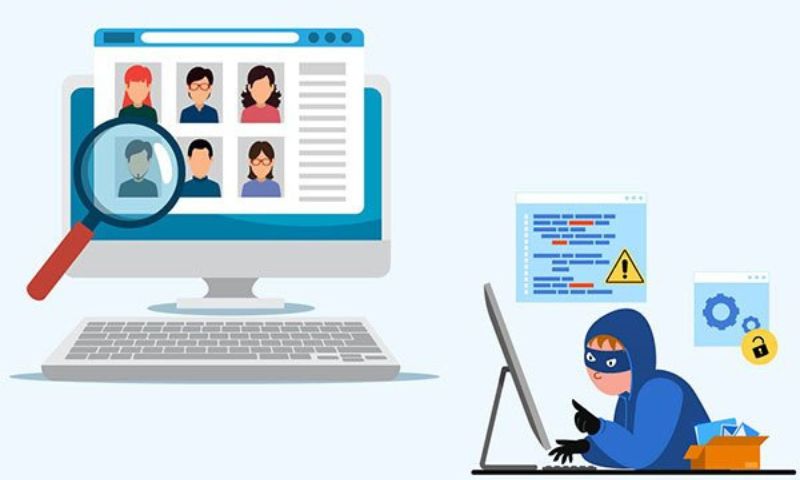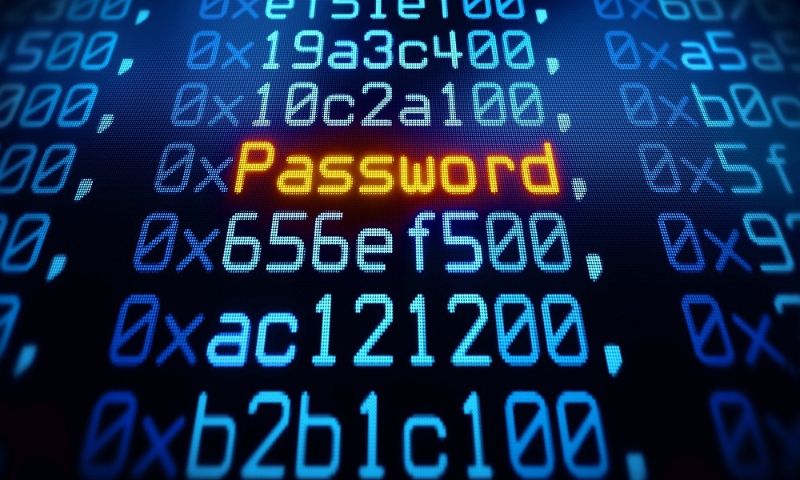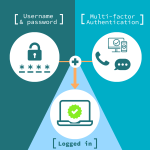Imagine this: your personal details, gone. Your business, distrusted. This could all stem from overlooking the critical aspect of understanding the risks and consequences of poor security. Every click you make, every file you store, could be the weak link that drains your wallet, shatters your privacy, and ruins the hard-earned trust you’ve built. Stick with me as we delve into the chaos poor security can trigger. We’ll uncover how data breaches strip away your financial security and tarnish your reputation for years. We’ll explore the nightmarish reality of identity theft and the havoc it wreaks on both individuals and businesses. Plus, we’ll navigate through the tangled web of legal fallout and the vital need for strategic disaster recovery. And fear not, I’m here to guide you through beefing up your defenses too, revealing game-changing tactics that shield you against relentless cyber threats. Welcome to the front line of the digital age, where your security is the battleground, and knowledge is your mightiest weapon.
The Dire Consequences of Data Breaches
Assessing the Financial Loss and Remediation Costs
When hackers break into systems, they cause massive harm. They can steal, destroy, or even hold your data hostage. This leads to huge costs, not just to fix the problem, but also in lost money while your business is down. It’s like having a store that can’t open; every day you’re closed, you lose sales. It’s more than just lost sales, too. The costs to fix the breach are high and often include hiring experts to figure out how the hackers got in and to fix any damage. If you store client data, there may be even more costs. You may have to pay fines if the breach was due to not following laws to protect data.
Stolen information leads to more than upset customers. It often means paying for things like credit monitoring for those affected. The total bill climbs fast, with some firms facing millions in costs. Plus, there are hidden costs. Your team might have to stop normal work to deal with the breach, so you lose productivity. They’re fighting fires instead of helping your business grow. And that’s tough on everyone.
The Long-Term Impact on Business Reputation and Trust
After a security breach, people find it hard to trust your business. It’s like if a friend loses your secret. It’s hard to feel safe sharing secrets with them again. For businesses, this loss of trust can come from customers, partners, or even your own staff. If people think you can’t protect their data, they may leave for a competitor they trust more. Rebuilding trust takes time, and it’s never the same.
Cyber threats don’t only damage trust. They can harm your brand for years. Think of your brand as a castle. A breach is like a break in the castle wall. It takes a lot of effort to fix and to convince people it’s safe again. Meanwhile, news of the break can spread far, damaging your name. Even long after you’ve repaired your defenses, the story of the breach remains.
The aftermath of compromised data might go way beyond losing trust and customers. You may face lawsuits or fines, especially if you didn’t keep data safe as you should have. Laws about data leaks are strict, and the fines match. Plus, if your trade secrets get out, you might lose your edge in the market.
Losing information to hackers is a nightmare. It can disrupt your business, stain your good name, and cost lots. Yet, with the right moves, you can keep your data castle strong. You can train your team, set up good safeguards, and have a solid plan for when things go wrong. Remember, in the web of cybersecurity, staying safe is way better than trying to mend things after they break.
The Dark Side of Cyber Threats: From Identity Theft to Business Operations
Understanding Identity Theft Aftermath and Personal Data Threats
When hackers steal your identity, it feels like they rip away part of your life. They use your name, bank info, or social security number to take your money or get new credit. You work hard, but someone else spends. Your bank account may shrink, and bills you didn’t create come at you. Suddenly, your credit score drops, and getting loans or jobs gets tougher. The law says you’re not to blame for fraud. However, clearing your name takes time and causes stress.
Next, let’s look at how this hurts businesses, too. Hacking can leak your customers’ data. Imagine you run a shop. Hackers get in and steal credit card info. Customers trust you, but the breach harms them. They feel worried and mad. This hurts your name in the market. Sales drop as customers leave for safer shops. Soon enough, the cash you need to run your shop dries up.
Looking closer at malware attacks, they can lock your files until you pay to free them. This is called a ransomware attack. Phishing scams are when hackers trick you into giving them your data. People make one click and sometimes lose so much. Health, money, even secrets can vanish. Plus, if your data gets attacked, you might face legal issues or fines. Your shop may also need to stop running for a while. While dead in the water, you lose more money every day it’s not fixed.
To avoid these pains, we must secure our data. Simple steps like strong passwords, teaching ourselves about threats, and always updating software help a lot. When we share info online, we must make sure it’s safe. It’s like we lock our doors at home. We don’t let just anyone in. We need the same thinking for protecting our online homes.
How Operational Disruptions Can Derail Business Continuity
Imagine your business is a ship, sailing smooth. Then, a cyber-attack hits like a storm. Suddenly, your ship can sink fast. Maybe you can’t take orders or make your product. You might lose the plan that shows how to keep going. This chaos costs cash and tests your crew’s spirit.
The cure? Build a good plan before trouble comes. Make sure you’ve got backups for your files and a team ready to fix things quick. Teach your mates how to stay safe online. Don’t wait for the storm to learn to swim._operations from cyber-attacks.
We live in a world where our lives and work blend into the digital sea. If we’re not careful, the same waters that help us can also pull us down. We must learn to navigate safely. It’s not just about staying afloat. It’s about sailing toward success, without fearing the threats that lurk beneath the waves.
Legal Repercussions and Strategic Responses to Cyber Incidents
Navigating the Legal Consequences of Data Leaks
Data leaks hit hard. They can spill your secrets everywhere. It’s a big deal – and the law says so too. Think about it, if your data leaks, you don’t just lose info. The law could come after you too. You might have to pay money or face other trouble because you didn’t keep data safe.
“Can you get in trouble if your data leaks?” Yes, you can. Someone finds out they shouldn’t have – that’s on you. The law says you must protect people’s info. If you don’t, get ready for a mess. It’s not just about losing private stuff. It’s also about what happens after. People could sue you, and the government might fine you. That’s more money lost.
Keep folk’s data safe. Use strong passwords. Don’t let strangers into your accounts. Teach your friends and family how to stay safe online. This helps keep everyone’s info out of the wrong hands. We must work together to stop data from getting lost or stolen.
The Role of Disaster Recovery Planning in Risk Management
Now, what if trouble happens anyway? That’s where disaster recovery planning comes in. It tells you what to do when bad stuff hits your computer or network, like cyber attacks.
“Why is disaster recovery planning important?” Because it’s your safety net! If hackers attack, it helps you get back up and running fast. You need a plan that lists the steps to take right after trouble starts. This way, you can fix things quick and lose less.
Have backups ready and know who to call for help. Always update your computers and programs. Check your plans often to make sure they still work. Stay ready, so surprises don’t knock you down.
In short, staying safe online means watching out for risks and knowing how to bounce back if something goes wrong. If you protect data and plan for disasters, you can keep yourself and others safe from a lot of trouble.
Investing in Robust Cybersecurity: Prevention and Protection Tactics
Elevating Data Security through Cybersecurity Awareness and Training
Imagine this: you’re at work, sipping coffee, when suddenly your screen goes dark. It’s a cyber-attack, and your data is gone. Feeling shocked? Well, it happens when security gets ignored. That’s why, in my world of cybersecurity, teaching folks to be aware is a big deal. It stops hackers in their tracks. Think of it like a superhero’s shield. It’s how you defend against all those internet baddies.
You might wonder, “Why do I need awareness training?” Let’s answer that quick. Awareness training stops silly mistakes. Mistakes that lead to huge data loss. The kind you hear about on the news. It’s training that teaches you to spot and stop cyber threats like phishing scams. These scams trick you into giving out private info. No one wants that.
This type of training gets everyone on the same level. We learn how to make strong passwords. We find out what not to click on. And we learn to check for funny business in our emails. By learning together, we all help keep things safe. I mean, who wouldn’t want a crew that can spot trouble before it hits?
The Critical Importance of Encryption and Firewall Defenses in Data Protection
Now, let’s chat about encryption and firewalls. These things keep your secrets, well, secret. Encryption scrambles data so that only the right people can read it. Firewalls block bad traffic from getting to your network. They’re like a bouncer at a club, only letting the cool kids in.
“Why should I care about encryption?”, you ask? Here’s the answer. Without it, anyone can read your data. And I mean anyone with a little tech know-how. With encryption, even if they grab your data, they can’t understand it. It’s like getting a treasure chest but not having the key.
Firewalls are your first line of defense. They show hackers the stop sign before they even get close to your treasures. They also keep an eye out for malware, which is software designed to hurt your system. This is the kind of stuff that causes massive headaches. And trust me, it’s a headache no one wants.
So here’s the lowdown. When you combine awareness with these tech tools, you get a fortress. It’s strong, and it keeps you and your office safe. By making sure we all know what’s up and using smart tech, we guard against those nasty cyber threats lurking in the digital shadows. Because no one wants to wake up to a headline featuring their own personal data horror story.
Investing in cybersecurity is just smart business. It saves you money and keeps your name clean. And hey, it helps you sleep better at night too. So let’s get on it and make sure we’re all safe out there on the web!
The dangers of cyber threats are very real. They hurt our pockets through financial loss and the cost to set things right. They can also ruin a business’s good name over time. Identity theft can turn our lives upside down, and a single hack can stop a company in its tracks. When data leaks, the law steps in, and the road to recovery can be tough. We’ve talked about planning for disaster and getting back on your feet.
To fight back, being smart about cybersecurity is key. Knowing what to do, teaching staff, and using tools like encryption are our armor. I know this stuff can be scary, but we’re not powerless. With the right steps, we can shield our data and keep our businesses and lives running smooth. Stay alert, keep learning, and let’s make cyber safety a top priority. Together, we’ve got this!
Q&A :
What are the main risks associated with poor security practices?
Poor security practices can lead to a myriad of risks including data breaches, identity theft, financial losses, reputational damage, and legal consequences. Cyber attackers often exploit weak security measures to access sensitive information, which can cause lasting damage to individuals and organizations alike.
How can poor security protocols impact a business?
Inadequate security protocols in a business can result in significant impacts such as operational disruptions, loss of customer trust, regulatory fines, and intellectual property theft. This not only affects a company’s bottom line but can also tarnish its brand and stakeholder relationships.
What are the consequences of not addressing security vulnerabilities?
Ignoring security vulnerabilities can lead to system compromises, where unauthorized users gain access to networks and databases. The consequences can range from the leaking of confidential information to complete system shutdowns, often accompanied by high recovery costs and potential legal action.
How does poor security affect personal data protection?
Poor security measures can severely compromise personal data protection, leading to unauthorized access and misuse of personal information. This compromises individual privacy and can lead to situations such as identity fraud, scamming, and personal data being sold on the dark web.
What steps can be taken to mitigate the risks of poor security?
To mitigate the risks associated with poor security, individuals and organizations should implement robust security protocols such as regular software updates, two-factor authentication, employee training in cybersecurity awareness, and the use of encryption for sensitive data. Additionally, consistent security audits and penetration testing can help in identifying and addressing vulnerabilities.




